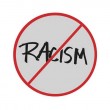By Al Murdach, LCSW, ACSW (retired) 
This column explores and examines some key words social workers may encounter in their work or training, especially in the area of social justice. Today we will look at: “Racism.”
Racism is the delusion that one “race” of humans is superior to all others, an old idea in all civilizations but an idea that has become especially virulent in our time. Often racism is combined with the concept of “race,” or the idea that humans can be classified as distinct groups by physical, cultural, or genetic characteristics. This concept has been scientifically debunked for years as a fallacy, but still has tremendous staying power among humankind. Because of their immense influence, the two concepts of racism and race form a witch’s brew of hate, prejudice, and discrimination that has plagued and continues to plague the world in many nefarious ways.
Social work, of course, has long battled these twin ideas and dealt as well with the victims who suffer from their effects. Although legal and social progress in this fight now seems steady, it is still dreadfully slow. It must also be mentioned that the field of Social Work has not always been in the forefront of this fight. Historically, some representatives of early charity organizations who identified themselves as “social workers” also reflected popular prejudiced attitudes toward minorities.
For example Robert Hunter, a friend of Jane Addams, loudly decried the massive waves of immigration of Eastern Europeans that descended upon northeastern U.S. cities in the early 1900s. To Hunter, these individuals were people from “the worst classes” of the Slavonic race and “the lower stratum of civilization” who were “unfit” for our society because they menaced the achievements of the Anglo Saxon “race” in this country. Echoes of Hunter’s observations, although now applied to different groups, can still be heard today in immigration debates around our country.
Even more startling, given the profession’s current strenuous efforts in the cause of racial equality, is the fact that social workers willingly and eagerly aided in the government’s program during World War II to move Japanese Americans, most of whom were American citizens, to relocation camps scattered throughout the West in remote locations, resulting in the loss of their incomes and property and unjustly denying them their legal rights. In line with the attitudes and popular opinion current at that time, no official social work voice was ever raised then to protest these actions. In fact, the AASW, the predecessor of NASW, actively supported these measures as necessary for military and national security needs.
Times and attitudes have, of course, changed, but such examples serve to show how much effort is still called for to further eradicate the distressing effects of ideas of race and racism. An especially distressing component of this potent brew is the fact that it consistently, throughout history, has been used as a basis for maintaining the privileges of particular groups (in many cases, the privileges of the white “race”). Since privilege is intimately tied to patterns of social dominance and control, any threat to its existence can be seen as a battle cry for resistance by those who feel disadvantaged. It is the strength, and sometimes the violence, of this resistance which makes changes in such attitudes toward minorities and the marginalized a long term project often winning important, but sadly only occasional, victories.











